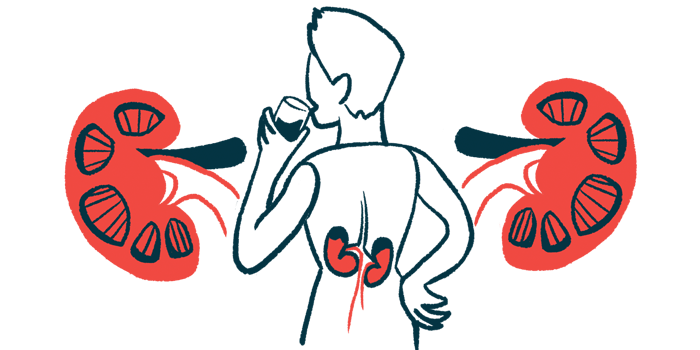FDA OKs Phase 1 study of Atara’s lupus nephritis treatment ATA3219
Trial of CAR T-cell therapy expects to enroll 1st patient later this year
Written by |

The U.S. Food and Drug Administration (FDA) has granted permission for Atara Biotherapeutics to test its lupus nephritis treatment candidate ATA3219 in a Phase 1 clinical trial involving lupus patients with this complication, which is marked by kidney damage and inflammation.
The first patient is expected to be enrolled in the study in the second half of this year, with top-line data anticipated by June 2025.
“We are eager to address the significant unmet need in lupus nephritis as we initiate our Phase 1 trial,” Pascal Touchon, president and CEO of Atara, said in a company press release.
ATA3219 is a CAR T-cell therapy being developed as a treatment for lupus nephritis, the most common complication of the autoimmune disorder. In lupus, abnormal immune B-cells generate self-reactive antibodies that target healthy tissues, leading to inflammation and a broad range of symptoms, depending on the affected tissues and organs.
Approximately half of patients will develop lupus nephritis, and while immunosuppressants can help reduce inflammation, as many as 70% of patients with the condition are refractory, meaning their disease fails to respond to treatment adequately.
“Existing therapeutic agents for lupus nephritis yield suboptimal responses and have limitations due to their requirement for ongoing administration, susceptibility to treatment failures, and limited accessibility to inflamed tissues,” said Rajani Dinavahi, chief medical officer at Atara.
Atara developing ATA3219 as off-the-shelf lupus nephritis treatment
CAR T-cell therapies use immune T-cells collected from patients (autologous) or healthy donors (allogeneic) that are equipped with a lab-made receptor called chimeric antigen receptor, or CAR.
With ATA3219, T-cells are engineered with a CAR targeting CD19, a protein found on the surface of disease-driving B-cells. Because these cells come from donors instead of patients, they can be stored and used when needed — leading scientists to call them off the shelf.
Moreover, cells from a single donor can allow the rapid treatment of several high-risk patients at the same time.
“We look forward to bringing the promise and accessibility of a potentially curative off-the-shelf cell therapy option to patients with severe autoimmune diseases, potentially eliminating the burdens of autologous CAR T therapies like costly infrastructure and treatment delays,” Touchon said.
Early academic results from an investigator-sponsored study demonstrated that all patients with lupus nephritis achieved drug-free, durable remission with a CD19 CAR T-cell approach. The therapy eliminated disease-driving B-cells and allowed healthy B-cells to return after treatment.
“Expanding upon an extensive clinical experience encompassing the treatment of over 600 patients using our allogeneic T-cell platform in both oncology and autoimmune diseases, we are excited to clinically evaluate the potential of our differentiated allogeneic CAR T-cell approach,” Touchon said.
Atara’s application to the FDA seeking authorization to begin clinical testing, submitted last month, included preclinical data demonstrating ATA3219’s CAR-mediated activity against B-cells from lupus patients.
ATA3219 is an off-the-shelf therapy that could significantly reduce constraints for patients and physicians … therefore potentially improving [treatment] access to a large population of patients.
The multicenter, open-label, Phase 1 study will evaluate the safety and preliminary efficacy of increasing doses of ATA3219 — 40, 80, or 160 million CAR T-cells — in people with lupus nephritis. Approximately three to six patients are expected to be treated with each dose level.
Before receiving the one-time infusion, participants will undergo a lymphodepletion regimen, in which chemotherapy agents will be employed to wipe out their immune cells and make room for the modified ones.
“CAR T cells can naturally infiltrate deep into target tissues to mediate B-cell depletion and produce durable responses,” Dinavahi said.
“Building on the encouraging academic data in lupus nephritis with autologous CD19 CAR T, ATA3219 is an off-the-shelf therapy that could significantly reduce constraints for patients and physicians … therefore potentially improving access to a large population of patients,” Dinavahi said.
The company also is testing the therapy in a Phase 1 clinical trial (NCT06256484) in people with relapsed or refractory B-cell non-Hodgkin lymphoma, a type of blood cell cancer.






